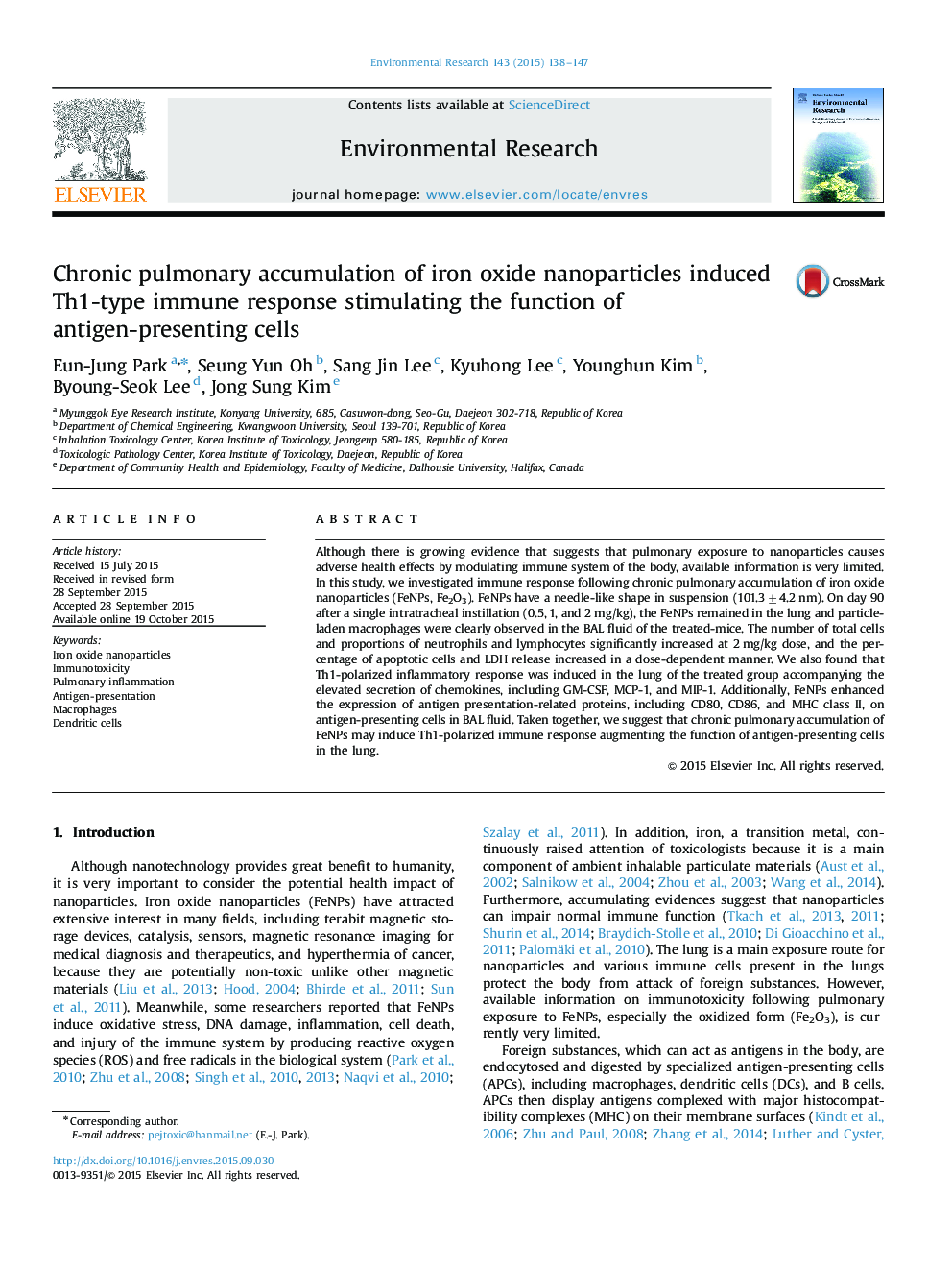| Article ID | Journal | Published Year | Pages | File Type |
|---|---|---|---|---|
| 6351849 | Environmental Research | 2015 | 10 Pages |
Abstract
Although there is growing evidence that suggests that pulmonary exposure to nanoparticles causes adverse health effects by modulating immune system of the body, available information is very limited. In this study, we investigated immune response following chronic pulmonary accumulation of iron oxide nanoparticles (FeNPs, Fe2O3). FeNPs have a needle-like shape in suspension (101.3±4.2 nm). On day 90 after a single intratracheal instillation (0.5, 1, and 2 mg/kg), the FeNPs remained in the lung and particle-laden macrophages were clearly observed in the BAL fluid of the treated-mice. The number of total cells and proportions of neutrophils and lymphocytes significantly increased at 2 mg/kg dose, and the percentage of apoptotic cells and LDH release increased in a dose-dependent manner. We also found that Th1-polarized inflammatory response was induced in the lung of the treated group accompanying the elevated secretion of chemokines, including GM-CSF, MCP-1, and MIP-1. Additionally, FeNPs enhanced the expression of antigen presentation-related proteins, including CD80, CD86, and MHC class II, on antigen-presenting cells in BAL fluid. Taken together, we suggest that chronic pulmonary accumulation of FeNPs may induce Th1-polarized immune response augmenting the function of antigen-presenting cells in the lung.
Keywords
Related Topics
Life Sciences
Environmental Science
Health, Toxicology and Mutagenesis
Authors
Eun-Jung Park, Seung Yun Oh, Sang Jin Lee, Kyuhong Lee, Younghun Kim, Byoung-Seok Lee, Jong Sung Kim,
